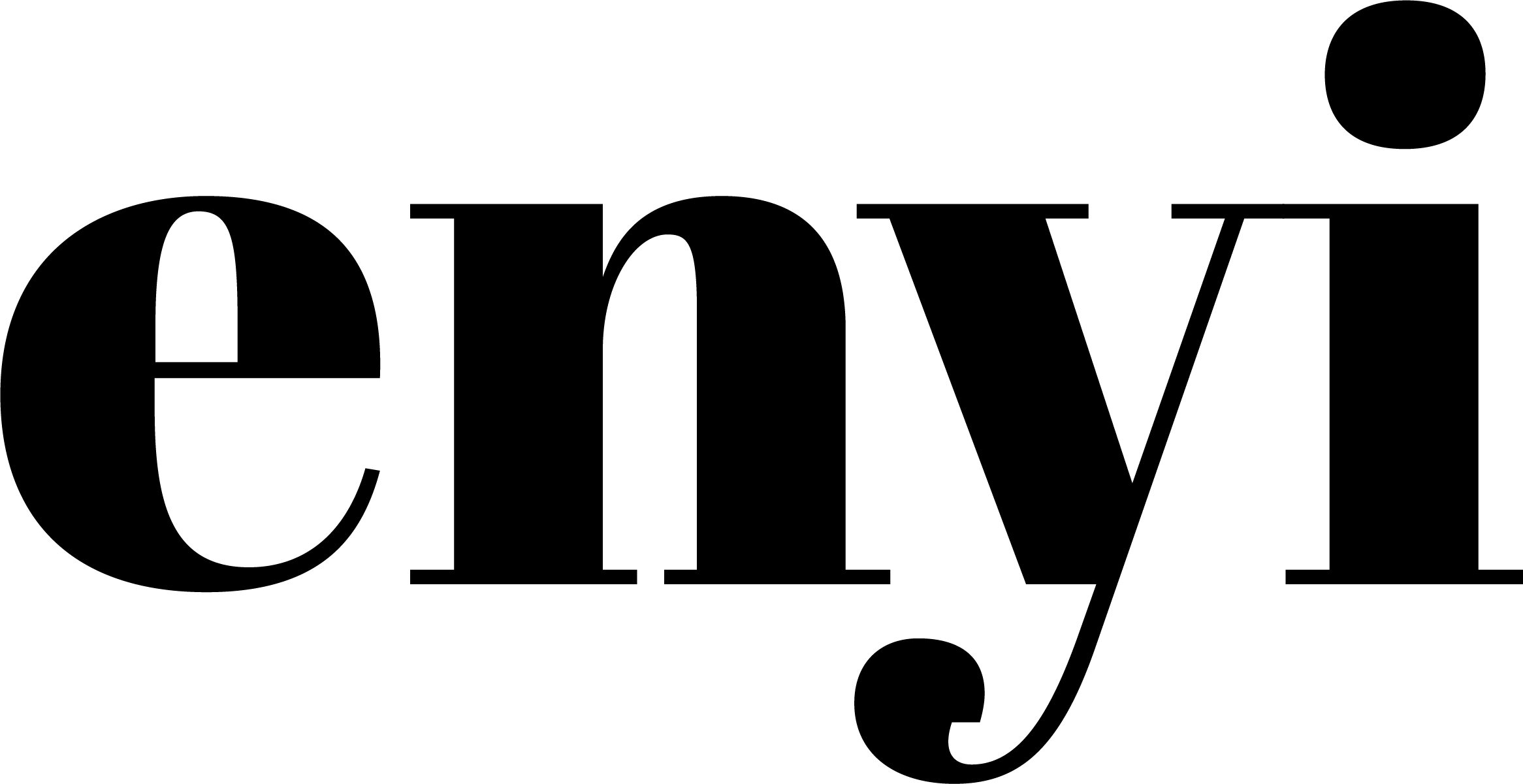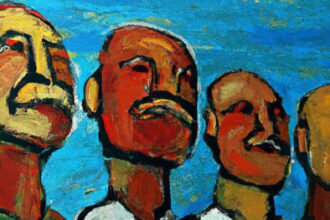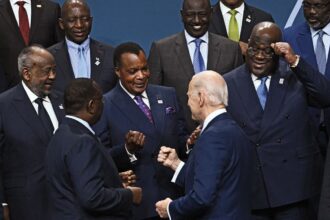In a society that subsists off capitalism, imperialism is the natural order of affairs. In this article I will explore the interconnectedness between historical examples of colonisation, through brute force and military intervention, and modern economic imperialism which is imposed through sovereign debt and conditional loans. Due to the vastness of this topic, I will focus on the relationship between India and Britain in the 19th century, and how economic policies used to dominate India have been utilised to build the foundation of modern economic policies. Policies perpetuated by institutions like the IMF have further augmented third world states’ sovereign debt crises and therefore paralysed states in the debt trap diplomacy. This is a cycle many states reliant on IMF loans are unlikely to break out of. I argue that there is an ongoing legacy of exploitation.
Economic colonisation was not an isolated phenomenon which ceased following the Colonial Declaration, it simply continued in a more nuanced form.
Maryam Habib
The US as opposed to Britain in the 19th century, hides behind the IMF and World Bank while handing out conditional loans that have been empirically proven to only deteriorate the condition of the debtor states. In fact, America’s informal empire is the greatest empire to have ever existed. Both historical and modern economic policies I explore, starve governments fiscally, which affects the poorest of the poor while wealthy states get richer off the back of these policies under the pretence of economic assistance.
HISTORICAL EXAMPLE OF ECONOMIC COLONISATION
Great Britain acted as the major collector of the surplus extracted from the underdeveloped countries of today…violence and racial discrimination were used blatantly in order to increase the size of the surplus” (Bagchi 1972). The imperial relationship between Britain and India became the foundation and catalyst upon which Britain maintained financial dominance in the world up until the First World war, and ultimately provided a lifeline during the tumultuous years of the 20th century leading up to the Second World War. How this was achieved was through a series of economic and colonial policies imposed on the state for over 200 decades, leading to a surplus appropriation which took place in many forms, ranging from labour, goods and commodities and knowledge of markets. The period before Europe’s colonial engagement with other states, under the guise of benevolent despotism that aimed to “modernise” and “civilize” underdeveloped states, China and India combined produced more than double the GDP of the entire west Casting doubt on the claim that Europe would morally, socially and economically civilize these economically and agriculturally rich power houses.
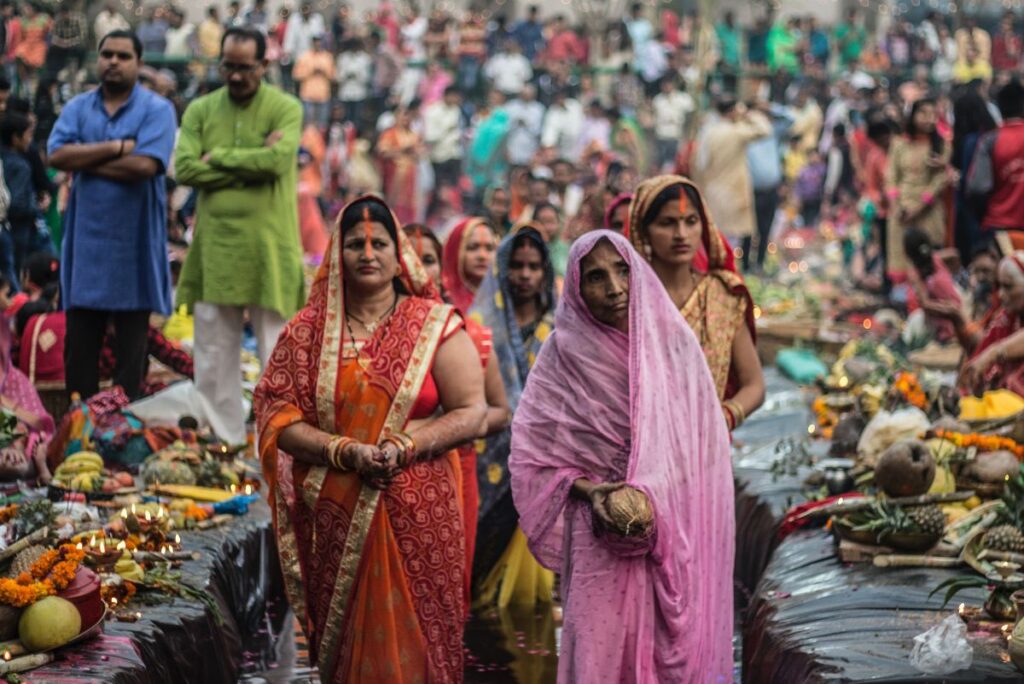
Via the East India Company, Britain imposed policies that would extract labour and transport Indians to other colonies and exploit industries, such as the cotton and textile industries, allowing Britain to maintain a monopoly over trade in India. In addition to this Britain imposed heavy taxes on the Indian population which would fund British imports of Indian goods. Thus, Britain put in place a peculiar system of international trade in which India compensated for Britain’s exports. Perhaps this serves as India’s homage to Britain as the price of becoming “civilised”. This cross-empire trade was of paramount importance to the rapid industrialisation of Britain while destabilising India’s industrial market and capital growth. India therefore became a satellite economy for Britain, whose produce and land lifted Britain’s economic and political power in the international arena.
Despite the “bleeding process” from which Britain benefitted off immensely and led to industrialisation in the metropolitan states, the act of surplus appropriation persisted, however in a more nuanced form. It took place through the process of unequal exchange between metropolitan states with higher organic composition of capital, consequently, higher productivity and colonies such as India, with lower levels of productivity. India’s deindustrialisation meant that it was no longer the highest exporter and producer of textiles, instead Britain had captured over 66% of India’s domestic markets. A decline which was further perpetuated by Britain’s technological advances exacerbating the colonial and political power Britain had over India. Ricardian theory of comparative advantage was used in international trade to deny modern Indian industries any protection and free trade was imposed forcing India to open up its state up for trade. The removal of barriers legalised the stranglehold that Britain had over Indian finances. This cynical imposition of free trade, while appearing liberal, was used to favour British businesses through annexation, as was the case with China’s Opium market, but it would also be accomplished by coaxing local leaders into working with British ‘informal’ imperial interests. It is for this reason that economists such as John Gallagher have argued that “free trade was not an alternative to imperialism, it was the goal”.
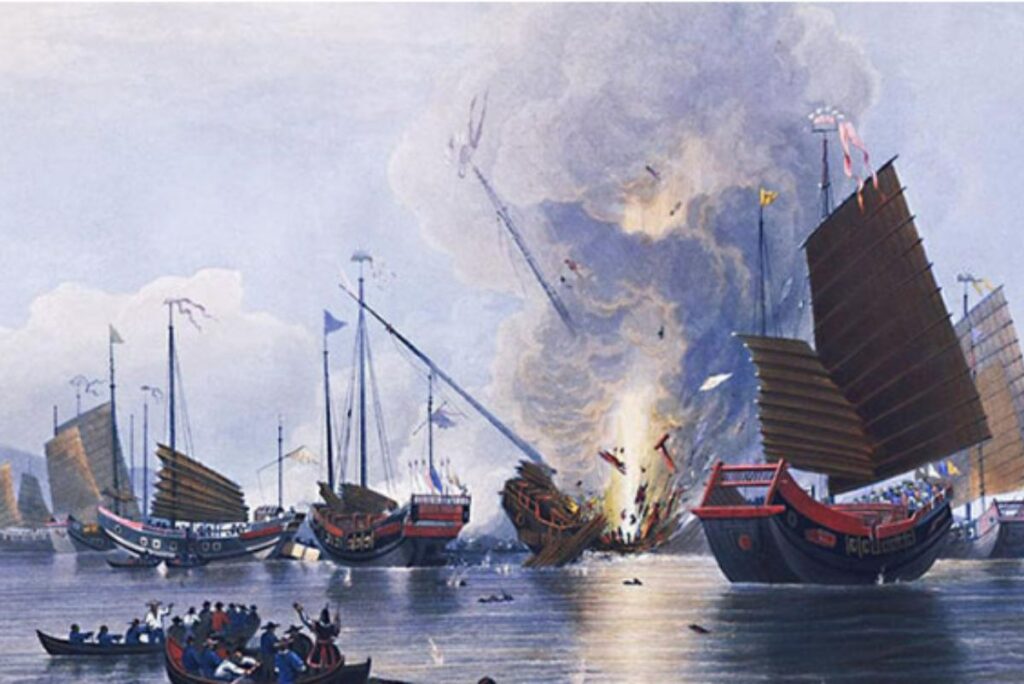
https://www.routledge.com/The-Continuing-Imperialism-of-Free-Trade-Developments-Trends-and-the/Grady-Grocott/p/book/9781138301085
https://www.britishempire.co.uk/maproom/imperialismoffreetrade.pdf
Therefore, while free trade was introduced as an imperialistic liberal ideology supporting an open market, it acted as a mechanism through which Britain and other metropolitan states exploited third world states. This decades long exploitation had an immeasurable impact on Indians, and the long-term impact lingers like a pungent smell in the economics and politics of India. Usta Patnaik estimated that the two centuries of colonialism and imperialism in India, drained £9.2 trillion out of India, through taxes and high tariffs all of which the average Indian civilian had to pay for and was further legitimised through free trade. The ‘tribute’ that India paid for the ‘white man civilising them’, didn’t just stop at wealth it exceeded that, the very infrastructure of India is damaged, and the average civilian bears the brunt of that with their livelihood. “Free trade, in one view, was no more than an excuse for pushing British goods in the colonies. It is also said that it was not liberalism at all, but another 19th century intellectual movement, utilitarianism, with a belief in the rule of law that shaped statecraft in India” (Stokes 1959).
MODERN DAY ECONOMIC IMPERIALISM: HOW THE IMF MAINTAINS THE COLONIAL STRUCTURES IN A POST-COLONIAL PERIOD
As John Adamas, ex-American President, explained “There are two ways to conquer and enslave a country: One is by the sword; the other is by debt.” Similar economic policies that were used by Britain to entrap India continue to be implemented through the dept trap diplomacy. Under the pretence of the Colonial Declaration Resolution 1514, former colonies were ‘granted’ the right to self-determination, only for these states to begin their independence in an economic system that was formulated in their absence during the Bretton Woods Conference in 1944.
An international economic system that reflects the interests of dominating western states.
Mariam Baldé
From this conference, institutions such as the International Monetary Fund and World Bank came to existence, both of which aimed to be a ‘last resort’ for states struggling economically and its aim to “pave the way for a stable economy and sustainable growth” globally. The problem starts at the top. The colonial power imbalance is visible within these institutions where richer states have a disproportionate influence in setting policies for debtor states, the US alone holds so many votes that it effectively has a veto over any decisions made by the organisation, many of which include interventions in economically struggling states. The IMF imposes policies that favour western states economic interests and usually leave developing states in a debt cycle. This is a form of ‘shock doctrine in which consent is engineered in a state of desperation where developing states have no choice but to ask the IMF for a handout, while giving up their sovereignty in favour of unpopular and disadvantageous economic policies. Far from self-determination, former colonies, in particular the African region, have only been drowned by policies that have proven to be detrimental for states. This is the informal empire and the means through which the west continues to impose neo-colonial rule over developing states.
States in Africa, who have been borrowing are constrained within fiscal parameter through which development can occur, by the IMF. These neo-liberal structural adjustments to debtor states economic policies, focuses on privatisation, austerity and forced market liberalisation, which has uncoincidentally provided multinational companies in the west lucrative profit opportunities. These are the condition set out by IMF’s Structural Adjustment Program which aims to increase capital, so debater states have capacity to repay their debts.
African nations are one of the biggest debtor states of the IMF, and yet despite SAPs, Africa is an economic crisis, with many states on the verge of defaulting on their sovereign debt, further exacerbated by the COVID-19 pandemic. Most African nations lacks basic infrastructure, economic growth is at best minimal, many citizens are living below the poverty line with little to no access to adequate food, health or education. All while Africa is heavily indebted to wealthy develop states, debt which was obtained to combat the economic problems but have evidently done little to better the situation. The crux of the problem is that the IMF gives out loans to states that cannot service this debt. African nations are unable to expand their economies and fight poverty while also making payments on their enormous debts. The continent owes more than it makes. For this reason, states such as Ghana, Kenyan and Ethiopia are edging closer to sovereign debt default. SAP have only increased these economic crises with policies that opens African nations to foreign investors who buy out industries instead of investing it back locally for growth, leading to increased levels of unemployment. Liberalisation of trade has meant that more industrialised and wealthier states can dump their exports in African nations, undermining local industries, impeding state’s ability to become a proactive producer of specialised commodities. Mirroring the effect of British colonial rule in India, which disabled the state from engaging with the international market, and comparative advantage theory was used to justify unequal exchange. Macroeconomic policies such as market pricing, austerity and the devaluing of debtor state currencies, has only ever benefited elites in third world states and western nations and corporations, just as it did in the 19th century and just as it continues to do so in the 21st century. Similarly, the victims of such policies are the poorest of the poor. Such mineral rich states have always been robbed by colonial power who lack the natural advantage that third world states have. Despite this, through legal responsibilities and guiding concept like pacta sunt servanda, sovereign debt has been used as a tool to prolong and support the establishment of colonial empires.
Empirical studies conducted by the likes of Birds and Mosley concluded that states are “better off economically without committing to be involved with IMF loans program”. Explaining that conditional lending and programs such as the Poverty Reduction and Growth Fund has landed some African countries into a debt cycle. However, despite these legitimate drawbacks of the IMF, it is one of the only institutions which can intervene and provide a handout when a state is in a dire situation. It is for this reason Kentikelenis states that the IMF is “essentially for the functioning of world economy” and is a “necessary evil for Africa”.
The most notable difference between historical examples of economic colonisation and modern economic imperialism is that there is a perceived sense of consent, however even black letter law acknowledges that consent to an activity in a high-pressure environment, showcases the individual does not have the freedom and capacity to make that choice. Why is it any different if a state is experiencing “horrendous levels of poverty, unemployment, malnutrition, illiteracy and economic decline” leaving them with no choice but to turn to one of the only institutions that can provide economic ease, albeit temporarily, and with exploitative conditions? This casts a shadow on the extent of self-determination former colonies have, if they cannot exercise their right to it, within an economic situation they had no say in and continue to have no say in.
The issues with western states and institutions that they hide behind is that they are set up in a way which inherently benefits economically through the demise of another state. The IMF was created before third world states were independent, the entire institution was developed at a time where third world states were satellite economies for the west. It seems that this is still the case. With no real objective body of governance, policies will be imposed on a one fits all basis, without understanding the cultural and economic situation of states the IMF loans to. Therefore, economist have suggested that instead of relying on the US or dollar as defining their GDP and therefore their citizens quality of life, third world states should cooperate with each other, and strengthen regional cooperation.
However, most third world states are already indebted to the IMF and have no choice but to comply with their stringent policies that allow very little space for national reforms or even regional cooperation. Additionally, if a debtor state threatened the capital accumulation of the US, it would lead to some kind of military intervention, or a coup or assassination as has been the case for several states and leaders. The debt trap is the biggest example as to how the west has maintained its colonial power, and it is far too elaborate for simply one state to escape, in order to genuinely address this issue, states must be ready to go head-to-head with the west and demand a seat on the table so they can contribute equally to reforming international economic policies which these debtor states are tied to.
CONCLUSION
Imperialism is the highest stage of capitalism” (Lenin, 1917). Western states maintain a dominant position within the current international economic market, in particular the US. Neo-colonialist states use the “pull of conditional loans, cultural hegemony and economic superiority to sway other countries foreign policy” under the pretence of economic assistance, as opposed to traditional colonial practices, which involved the subjugation of countries through political and military intervention. Despite the more subtle power imbalances, neo-colonist nations continue to exert the same kind of pressure if not more, through international credit.

Confessions of an economic hitman, Amiya Kumar Bagchi “Perilous Passage: Mankind and the global Ascendency of Capital” published in 1978 . Anghie, Antony. “The Evolution of International Law: Colonial and Postcolonial Realities.” Third World Quarterly, vol. 27, no. 5, 2006, pp. 739–53. JSTOR, http://www.jstor.org/stable/4017775. Accessed 3 Apr. 2023. Klein, N. (2008). The shock doctrine. Penguin Books.
Everything has been done imaginable to keep this game going. As a result of these conditional loans, the US has outdone Britain’s 19th century efforts to conquer the world, creating history’s first global empire, while legalising its intrusion of sovereign states and engineering their consent in a time of desperate economic need. Despite this, most third world states have nowhere else to turn and so give up their sovereignty, so that they can care for their citizens. Despite IMFs aim to stabilise economies globally and promote GPD growth, it has failed to do so just that. It has failed because it is in the Americas, and the West in general, best interest to keep third world states in a debt trap. Just as the IMF has engineered consent, they also engineered their own failure as an institution.

















